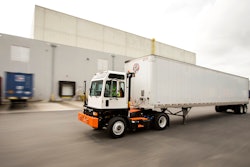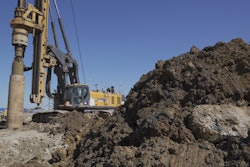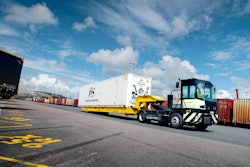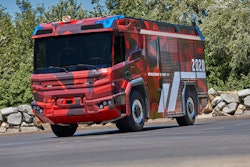
responses submitted by Ron Huibers, President and CEO, Volvo Penta of the Americas
Diesel, Electric and Other Power Alternatives
Are the diesel bans in cities around the world having an impact on how your company is designing its products? How so?
We see the movement toward urban green transportation systems in cities around the world is helping to drive investment in electromobility. We are working closely with the City of Gothenburg in Sweden – where Volvo Penta is headquartered – with its ElectriCity initiative, which includes electric and hybrid vehicles as well as charging infrastructure.
What role, if any, is electrification playing in your company’s design initiatives?
Volvo Penta has announced a goal of offering commercially available electrified solutions for OEM customers by 2021.
We are actively involved in several electromobility initiatives. For instance, this year we installed an electric driveline in a terminal tractor as a proof-of-concept, drawing on the experience and engineering resources of our sister companies, Volvo Trucks and Volvo Buses. From this project, we have gained a deeper understanding of both the challenges and opportunities in the installation process and how to integrate a full-electric driveline into the vehicle system. The electric terminal tractor is now going through a thorough testing program in an operational setting. We have also formed an industrial partnership with Rosenbauer to develop the electric driveline in its first electric fire truck.
Does your company foresee electrification playing a bigger role in the coming years, and what is needed for it to become a more widespread technology in the heavy-duty vehicle industry?
Battery cost and performance is a crucial factor when it comes to the commercial viability of electrified drivelines on a higher scale. Through our research and collaboration with suppliers, we see 2021 as a tipping point in this development.
Diesel is clearly not going anywhere for several decades, but are there ways your company sees its use could further evolve or become cleaner to meet growing demand for fuels which have less of an impact on the environment?
Absolutely. Working in parallel to develop the technologies shaping tomorrow – such as electrification – we’ll continue to invest in the advancement of cleaner, more emission-friendly diesel technologies. We see that market demands will require a mixture of solutions for the foreseeable future. Combustion engines still have a long future ahead and with environmental care at our core, Volvo Penta will remain focused on its aim to deliver the most energy efficient solutions on the market. Hybrid systems also offer great potential.
How, if at all, does your company see alternative fuels fitting into the heavy equipment industry? Are there specific ones on which either your company is focusing or which have the potential to most benefit the industry?
Over the years we at Volvo Penta, together with our colleagues within the Volvo Group, have placed a focus on the investigation and development of alternative fuels and drivelines for the heavy equipment industry, as well as the other areas in which we operate. Across the group we have different types of solutions. We see value in these efforts and will continue to progress in this alternative fuel research.




















